In 2013, the definition of “Golden Years” and how seniors are choosing to spend them has changed dramatically–even from our idea of what that looked like 5-10 years ago. Many seniors are maintaining an active lifestyle well into their 70’s, 80’s, and even 90’s, including a regular schedule full of events, appointments and the stuff of day-to-day life. As a society, we are also more focused on how our friends, parents and grandparents can make the most out of every day, and supporting them along the way. Furthermore, there are many professionals committed to providing seniors with plenty of options for necessary services, levels of care, and interaction that places significant value on the quality of their daily lives.
Choose How YOU Live – Full Spectrum of Senior Care
The Waterford Communities offer care services and programs that are specifically tailored to enhance senior living. According to Ana Taylor, RN, BSN, and Director of Nursing at The Waterford Communities, this includes a resident and family driven care approach to meet senior health and care in a holistic way. She says, “Our nursing staff believes this to be a beneficial approach for seniors to know about and to be actively participating in because with age, seniors often have to give up a certain amount of independence and rely on educated healthcare staff to assist them. By actively participating in their own health care plan, we allow them to actively participate in their care. Since they are directing their cares we can care for them better and more effectively. We are continuously improving ourselves, and investing in our employees’ knowledge and experience so they can care for our seniors as best they can. At The Waterford, each employee is passionate about geriatric care. We definitely believe in approaching care in a holistic way, as we want to care for the person as a whole and not just the problems that come up periodically. We do not see seniors as various diagnoses or symptoms, we see them as a whole person and our job is to enrich their lives in any and every way possible.” She adds, “In order to ensure our residents are living a full and happy life, we always encourage them to develop a regular exercise regimen. This regimen could be solely physical but it’s always important to exercise your mental, emotional, spiritual and physical wellbeing. For example, if a person needs a little more help finding ways to exercise their mental abilities, we want them to seek programs or activities to help with that. We also encourage seniors to begin researching assisted living facilities and skilled nursing facilities that they feel would meet their needs early when they are most healthy. Should a situation arise that they would need to go there, everything is already attended to and that substantially decreases any associated stress and confusion. We also like to remind seniors, their family members, and the Lincoln community that as employees of the Waterford we are always here to help. In fact, we want to help and that’s why we come to work every day. We come to work for you and we encourage everyone to always look for a place that does just that.”
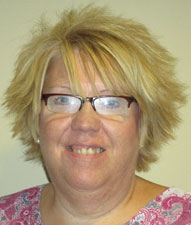 High Plains Alzheimer’s Special Care Center is located at 5601 S. 84th street and provides many services for aging residents experiencing varying degrees of Alzheimer’s disease. Deb Maguire, Administrator at High Plains, says “We are committed to being the leader in providing quality personal services for our residents, while honoring the experience of aging. We understand that making the decision to look for placement of a loved one in the care of others is one of the most difficult decisions you may have to face. Our Special Care Centers are designed to help ease your mind through this process. We carefully select our staff and train them to make sure your loved one receives the best possible care. We know in order to provide the best possible care first we must understand their world. We must also know each resident’s unique life story in order to create moments that are meaningful to them personally. We provide a warm, caring and supportive environment where our residents can experience daily routines and familiar faces. Our programs are designed to add meaning and value to their lives and help them feel secure in their environment.” She adds, “Throughout your loved ones stay here at High Plains, their health and well-being will be a shared concern among their family and our knowledgeable staff. As partners in care we will work together to build a plan that supports their independence and provides them with the sense of belonging that is so important to all of us. ‘Meaningful Moments’ is our distinctive dementia-care program designed to honor the individual life story of each resident, while addressing their unique needs throughout the aging experience. We invite anyone to call or stop by for a tour anytime to see our facility, meet our staff, and learn more about our approach for dementia care.”
High Plains Alzheimer’s Special Care Center is located at 5601 S. 84th street and provides many services for aging residents experiencing varying degrees of Alzheimer’s disease. Deb Maguire, Administrator at High Plains, says “We are committed to being the leader in providing quality personal services for our residents, while honoring the experience of aging. We understand that making the decision to look for placement of a loved one in the care of others is one of the most difficult decisions you may have to face. Our Special Care Centers are designed to help ease your mind through this process. We carefully select our staff and train them to make sure your loved one receives the best possible care. We know in order to provide the best possible care first we must understand their world. We must also know each resident’s unique life story in order to create moments that are meaningful to them personally. We provide a warm, caring and supportive environment where our residents can experience daily routines and familiar faces. Our programs are designed to add meaning and value to their lives and help them feel secure in their environment.” She adds, “Throughout your loved ones stay here at High Plains, their health and well-being will be a shared concern among their family and our knowledgeable staff. As partners in care we will work together to build a plan that supports their independence and provides them with the sense of belonging that is so important to all of us. ‘Meaningful Moments’ is our distinctive dementia-care program designed to honor the individual life story of each resident, while addressing their unique needs throughout the aging experience. We invite anyone to call or stop by for a tour anytime to see our facility, meet our staff, and learn more about our approach for dementia care.”
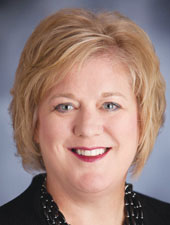 All of the Gateway Senior Living products, services and programs are specifically tailored toward senior living. From the living environment to programming, residents at Gateway are offered choices to meet their individual needs, wants and interests. According to Amy Fish of Gateway Senior Living, “Gateway is known as an environment where seniors have a multitude of options to maximize their living experience. People who consider Gateway Senior Living know that Gateway offers whatever level of housing or health care services they will need to meet their own or their spouse’s needs. This commitment not only provides choices to meet their needs but, more so, it provides the security of knowing that no matter what happens, they will not have to leave our campus to get services. At Gateway Senior Living we believe that life, at any age, should be an experience of learning, growing and challenging one’s self intellectually and artistically. Gateway Senior Living is known for its vibrant life-long learning and experiential opportunities both on and off the campus. This manifests itself in educational relationships with community universities, colleges, and schools to create a learning environment that residents can participate in as a student or teacher. It also includes serving as a site for educational classes or programming for a variety of educational disciplines.” She adds, “A key component of enjoying the passage of years is a healthy mind, body and spirit. Whether a person wants to proactively participate in a program that promotes their wellness or they are rehabbing from an injury or surgery, the Gateway team of fantastic therapists and staff work diligently with our residents to ensure their continued pursuit of their interests and hobbies.”
All of the Gateway Senior Living products, services and programs are specifically tailored toward senior living. From the living environment to programming, residents at Gateway are offered choices to meet their individual needs, wants and interests. According to Amy Fish of Gateway Senior Living, “Gateway is known as an environment where seniors have a multitude of options to maximize their living experience. People who consider Gateway Senior Living know that Gateway offers whatever level of housing or health care services they will need to meet their own or their spouse’s needs. This commitment not only provides choices to meet their needs but, more so, it provides the security of knowing that no matter what happens, they will not have to leave our campus to get services. At Gateway Senior Living we believe that life, at any age, should be an experience of learning, growing and challenging one’s self intellectually and artistically. Gateway Senior Living is known for its vibrant life-long learning and experiential opportunities both on and off the campus. This manifests itself in educational relationships with community universities, colleges, and schools to create a learning environment that residents can participate in as a student or teacher. It also includes serving as a site for educational classes or programming for a variety of educational disciplines.” She adds, “A key component of enjoying the passage of years is a healthy mind, body and spirit. Whether a person wants to proactively participate in a program that promotes their wellness or they are rehabbing from an injury or surgery, the Gateway team of fantastic therapists and staff work diligently with our residents to ensure their continued pursuit of their interests and hobbies.”
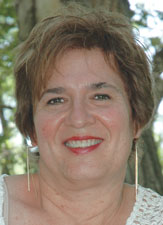 Many times during the aging process, it is difficult but necessary to get many conversations started about various concerns such as health care, living arrangements, and end of life provisions. Jackie Bates, RN, CHPN, and the owner and operator of Conversations has set out to help begin and facilitate those types of conversations. Conversations is a business based on Bates’ published handbook “Conversations: Living Through The Process of Dying” that offers education, public speaking and consulting services for those coping with terminal diseases or death. Bates says, “I have seen clear examples of people living full and happy lives even at the end due to one primary consideration: their dignity was cared for and protected. The state of feeling worthy or dignified at the end of life allows a person to experience levels of rest, peace of mind, and assurance that all that can be well is well. During my speaking engagements or Living Room Discussions we are able to reveal what dignity may look like for individuals and their support system. We talk about how to care for final wishes and how to communicate to others just what you want or don’t want for your own end-of-life experience. The first section of my handbook addresses topics to help bring a sense of dignity into our lives. This may include choosing someone to care for your pet, determining what you need to say before you leave, or deciding where do you want to live your last days.” Bates further explains, “This Spring I was contemplating and exploring the word ‘advocate,’ including its meaning, intention, desired outcome, and purpose. Merriam-Webster says the meaning includes: ‘one that pleads the cause of another…one that defends or maintains a cause…one that supports or promotes the interests of another.’ I bet we all have examples when we stood in the gap for someone and asked the questions during health-related appointments or remembered the answers and directions more clearly because we were the objective ones, the less affected ones, the healthy ones. If you do have an advocate — that willing person to stand beside you and invest emotions, time, wisdom, and to honor your choices at the end of life — you have been given a gift. An important part of my work is to encourage all of us to be advocates, and to plead, defend, support and promote the cause of helping others who are alone, ill, weak, confused or maybe even just unaware of what to say or ask. If you don’t currently have an advocate, you still have plenty of options. Social Workers and Discharge Planners in hospitals can coordinate general options of care. For those who want specific goals and wishes to be honored, I offer private consultations or can arrange to attend health care appointments with clients, schedule a meeting with family and friends to sift through your story and make a plan of action, or provide a referral to your next step. The amazing truth about all of this ‘living a full and happy life’ seems to boil down to love, and then dignity becomes a natural outcome.”
Many times during the aging process, it is difficult but necessary to get many conversations started about various concerns such as health care, living arrangements, and end of life provisions. Jackie Bates, RN, CHPN, and the owner and operator of Conversations has set out to help begin and facilitate those types of conversations. Conversations is a business based on Bates’ published handbook “Conversations: Living Through The Process of Dying” that offers education, public speaking and consulting services for those coping with terminal diseases or death. Bates says, “I have seen clear examples of people living full and happy lives even at the end due to one primary consideration: their dignity was cared for and protected. The state of feeling worthy or dignified at the end of life allows a person to experience levels of rest, peace of mind, and assurance that all that can be well is well. During my speaking engagements or Living Room Discussions we are able to reveal what dignity may look like for individuals and their support system. We talk about how to care for final wishes and how to communicate to others just what you want or don’t want for your own end-of-life experience. The first section of my handbook addresses topics to help bring a sense of dignity into our lives. This may include choosing someone to care for your pet, determining what you need to say before you leave, or deciding where do you want to live your last days.” Bates further explains, “This Spring I was contemplating and exploring the word ‘advocate,’ including its meaning, intention, desired outcome, and purpose. Merriam-Webster says the meaning includes: ‘one that pleads the cause of another…one that defends or maintains a cause…one that supports or promotes the interests of another.’ I bet we all have examples when we stood in the gap for someone and asked the questions during health-related appointments or remembered the answers and directions more clearly because we were the objective ones, the less affected ones, the healthy ones. If you do have an advocate — that willing person to stand beside you and invest emotions, time, wisdom, and to honor your choices at the end of life — you have been given a gift. An important part of my work is to encourage all of us to be advocates, and to plead, defend, support and promote the cause of helping others who are alone, ill, weak, confused or maybe even just unaware of what to say or ask. If you don’t currently have an advocate, you still have plenty of options. Social Workers and Discharge Planners in hospitals can coordinate general options of care. For those who want specific goals and wishes to be honored, I offer private consultations or can arrange to attend health care appointments with clients, schedule a meeting with family and friends to sift through your story and make a plan of action, or provide a referral to your next step. The amazing truth about all of this ‘living a full and happy life’ seems to boil down to love, and then dignity becomes a natural outcome.”
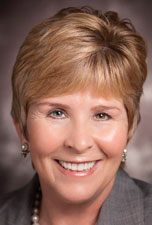 Roxann Rogers-Meyer of Immanuel Communities also stresses the importance of having these types of conversations early-on. She says, “Planning for the future is the most important factor to aging successfully. It is important for families to initiate the conversation on how to move forward when considering a move to a senior living community. At The Landing, we encourage families to begin the conversation when the senior is in good health. It is difficult to plan when there is declining health or a crisis of some kind. The earlier you explore your senior housing options, the more choices and control you will have over your future. The conversations regarding a move to a retirement community are difficult but important. Too often we hear, ‘I wish I had made the decision sooner.’” As an Immanuel Community, The Landing at Williamsburg Village is Lincoln’s premier senior living community offering independent and assisted living and memory support. The Landing residents enjoy a secure and maintenance free lifestyle, featuring a warm water swimming pool, underground parking, an AgeWell Center, a computer lab, two dining venues and one of the only art galleries in the Midwest. The community is situated on a beautiful campus with walking trails and a lake. Residents at The Landing can engage in activities and events like The Landing Melodrama or the annual Explorers adventure which has featured an Alaskan Cruise and a trip to Mount Rushmore. Roxann adds, “Today’s senior wants to remain active and involved and they are looking for opportunities to pursue their passions. The Landing seeks to provide seniors with plenty of those opportunities every day.”
Roxann Rogers-Meyer of Immanuel Communities also stresses the importance of having these types of conversations early-on. She says, “Planning for the future is the most important factor to aging successfully. It is important for families to initiate the conversation on how to move forward when considering a move to a senior living community. At The Landing, we encourage families to begin the conversation when the senior is in good health. It is difficult to plan when there is declining health or a crisis of some kind. The earlier you explore your senior housing options, the more choices and control you will have over your future. The conversations regarding a move to a retirement community are difficult but important. Too often we hear, ‘I wish I had made the decision sooner.’” As an Immanuel Community, The Landing at Williamsburg Village is Lincoln’s premier senior living community offering independent and assisted living and memory support. The Landing residents enjoy a secure and maintenance free lifestyle, featuring a warm water swimming pool, underground parking, an AgeWell Center, a computer lab, two dining venues and one of the only art galleries in the Midwest. The community is situated on a beautiful campus with walking trails and a lake. Residents at The Landing can engage in activities and events like The Landing Melodrama or the annual Explorers adventure which has featured an Alaskan Cruise and a trip to Mount Rushmore. Roxann adds, “Today’s senior wants to remain active and involved and they are looking for opportunities to pursue their passions. The Landing seeks to provide seniors with plenty of those opportunities every day.”
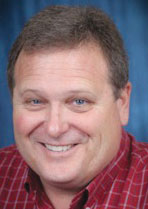 The Legacy Retirement Communities provide several options for senior living, including townhomes, independent living, assisted living, and memory care at the Arbors. If family members are helping seniors find a retirement community, it is extremely important that they communicate well with each other regarding their needs and desires. A clear understanding of what is available and what is necessary for their happiness should be discussed and researched. According to Legacy Estates Marketing Director, Jeff Chapin, “At Legacy Retirement Communities, we feel that even though life changes as we age, seniors need to always find joy in their lives and continue participating in activities that enrich their lives and bring meaning to each day. That may be through volunteer work, community entertainment or spending time with friends. We understand that this will be one of the biggest decisions of your lifetime, but we encourage people to not wait too long to try Legacy Living. Move in while you can enjoy all that we have to offer.” The Legacy Retirement Communities have also been family owned and operated since 1995. Chapin adds, “It’s nice to see the CEO of our four communities walking the halls visiting with residents every week.”
The Legacy Retirement Communities provide several options for senior living, including townhomes, independent living, assisted living, and memory care at the Arbors. If family members are helping seniors find a retirement community, it is extremely important that they communicate well with each other regarding their needs and desires. A clear understanding of what is available and what is necessary for their happiness should be discussed and researched. According to Legacy Estates Marketing Director, Jeff Chapin, “At Legacy Retirement Communities, we feel that even though life changes as we age, seniors need to always find joy in their lives and continue participating in activities that enrich their lives and bring meaning to each day. That may be through volunteer work, community entertainment or spending time with friends. We understand that this will be one of the biggest decisions of your lifetime, but we encourage people to not wait too long to try Legacy Living. Move in while you can enjoy all that we have to offer.” The Legacy Retirement Communities have also been family owned and operated since 1995. Chapin adds, “It’s nice to see the CEO of our four communities walking the halls visiting with residents every week.”
Tabitha’s Elder Care Continuum, the first and most experienced of its kind in Nebraska, offers living communities for every stage of aging. In addition, Tabitha’s free continuum navigation service helps ensure the best fit for each person’s care needs, lifestyle and preferences, meeting clients and their families wherever they are on life’s journey.
Tabitha Independent Living
Designed for seniors who want to live independently but may no longer wish to maintain a home, Tabitha Independent Living provides all the comforts of home, a built-in social network, affordable rent and all maintenance provided, including yard care, snow removal and building upkeep.
Tabitha Assisted Living
When Elders need broader support, Tabitha’s assisted living communities in Lincoln and Crete offer maintenance-free residences, around-the-clock personal care and enriching activities, all in a safe and secure environment. Tabitha Assisted Living is an ideal solution for adults not yet in need of a great deal of care but who may require assistance with activities of daily living, such as bathing, personal grooming, dressing, or medication management.
Tabitha Rehabilitation
Tabitha offers highly advanced therapy programs that promote a thorough rehabilitation for clients, preparing them to return home safely after recovering from an injury or illness. Tabitha Nursing and Rehabilitation Center in Lincoln brings together the latest balance, low-impact and traditional rehabilitation equipment with the organization’s own professional, encouraging and compassionate therapists. Two bright and beautiful, state-of-the-art rehabilitation gyms host an unlimited range of customizable therapy programs for all stages of healing.
Tabitha Skilled Nursing and Long-Term Care
Tabitha offers its renowned skilled nursing and long-term care services across southeast Nebraska for clients needing either short-term or longer-stay living options. Consistently boasting prime clinical excellence scores from the Centers for Medicare and Medicaid, Tabitha Nursing and Rehabilitation Center (Lincoln) and Tabitha of Crete appear with regularity on U.S. News & World Report’s annual “Best Nursing Homes in Nebraska” list. Tabitha-managed Blue Valley Nursing Home supports Tabitha clients in Thayer County in need of short-term rehabilitation, longer-term nursing care, adult day care or hospice care.
Also in Lincoln, Tabitha’s four innovative Green House ® homes transform the traditional long-term care setting into an intimate, comfortable, residential-style experience that feels just like family. And in 2014 Tabitha, in collaboration with Immanuel, will open its fifth residential-style skilled-nursing and long-term care community, this time on The Landing’s south Lincoln campus.
Tabitha’s Journey House SNF for Hospice Care
In 2011 Tabitha opened the state’s first Medicare-certified, free-standing skilled nursing and long-term care community dedicated to compassionate end-of-life care. Journey House SNF for Hospice Care serves 12 residents and their families in a supportive and loving environment as they experience life’s final journey. Experienced hospice caregivers, a peaceful but life-filled atmosphere, and large, private accommodations—including indoor and outdoor gathering areas—are just a few of the intentionally designed elements in this comfortable, dignified living community.
Sumner Place, located at 1750 S. 20th Street, offers several different types of specialized living options. These include care options specifically tailored to support seniors with Alzheimer’s and Dementia, options for those undergoing short-term rehabilitation or needing sub-acute care, as well as skilled nursing or long term care options. Sumner Place understands that seniors facing the challenges of Alzheimer’s disease and other related Dementia need a safe, nurturing environment and strives to provide this type of environment for their residents. They specialize in individualized programs designed to reduce feelings of confusion, fear, and agitation and offer meaningful, enjoyable activities that stimulate the mind and body with services focusing on the resident’s wide range of abilities. Sumner Place welcomes and encourages family involvement and they also work closely with the Alzheimer’s Association. Designed specifically for “patient-centered” care, their short-term rehabilitation facility provides an extensive range of rehabilitative services and 24-hour skilled nursing care. After a stay in the hospital, patients may only require short-term rehabilitation or short-term skilled nursing care that supports their main goal to return home or to a residential care environment. Sumner Place is dedicated to providing a “culture of rehabilitation” for patients to maximize improvement of health and wellness. Sumner Place also provides 24-hour nursing care, or Skilled Nursing Care, with extended medical and rehabilitative services for seniors with complex medical conditions. They offer a range of rehabilitative therapies available to both nursing-care residents and other members of the Lincoln community. Sumner Place also employs 24-hour staffing to provide comprehensive services to those requiring a greater level of care than that offered by assisted living facilities. With 24-hour nursing care and many of the comforts of home, Sumner Place’s Skilled Nursing Care balances quality care and quality of life. They promote autonomy and choice, and offer a variety of services, social activities, and recreational opportunities. Residents are encouraged to continue social activities and personal interests. Services can be grouped into three general care categories: medical, nursing and rehabilitative, and personal.
Medical Care
Medical care in a Skilled Nursing Care center may be one-to-one (attending physician) or one-to-many (medical director). These physicians oversee medications, examinations and treatments. They work with staff, residents and families to develop care plans.
Nursing and Rehabilitative Care
Nursing services include assessment, treatments, injections, and administration of medications. Rehabilitative care services might include post-hospital stroke, heart or orthopedic care, or various types of therapy, e.g. respiratory, physical, occupational or speech therapy.
Personal Care
Personal care offers assistance with “activities of daily living.” These daily tasks can include help getting out of bed, bathing, using the toilet, dressing, walking or eating. Certified nursing assistants (CNAs) provide much of this care.
These services are centered around each senior’s lifestyle, as Sumer Place is dedicated to providing residents and their families peace of mind and an atmosphere that delivers comfort, security, and quality of life. They are committed to delivering innovative, customer focused care in a setting that is right for you. Sumner Place can provide what you need today, as well as offer you the security of knowing that there are plenty of options for tomorrow.
Hospice Care
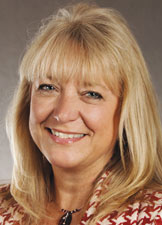 Hospice Community Care seeks to meet the physical, emotional and spiritual needs of patients and families who are facing a life limiting illness. They focus on life and the quality of living, while accepting the reality of death as a part of life. According to Rhonda Saunders of Hospice Community Care, “Everyone has the right to choose the Hospice Provider that you feel would work best with your family and loved one. You may also call and request a meeting that will provide you will more information at no cost, in order to learn about the comprehensive benefits of the Hospice Community Care program. We strive to ensure that anyone can inquire about hospice services at any time. In my experience, having end-of-life discussions and learning about what to expect from Hospice Care in advance can greatly reduce stress and increase your chances of making good educated decisions about your loved one’s treatment plan. In most cases, Medicare A, Medicaid, Private Insurance and HMO’s will cover the entire cost of hospice services. This includes all members of the hospice team, medications and durable medical equipment required for the comfort of the patient and the relief of pain. Hospice Community Care provides individualized hospice services wherever our patients and families call home. This may include a personal residence, nursing facility, assisted living residence or a hospital. The care provided by Hospice Community Care does not replace those services provided by the assisted living or nursing home staff. Hospice is an additional support system with individualized care provided by our Interdisciplinary Hospice Team. Furthermore, hospice is not just for someone who has cancer. Hospice Community Care cares for people with all end-stage diagnoses, including Alzheimer’s, Pulmonary Disease, Congestive Heart Failure, Liver Disease, Dementia, Parkinson’s, Renal Disease, Huntington’s Disease, and ALS. Hospice Community Care’s mission is to facilitate access to dignified, end-of-life care and quality services that allows our patients and families the hospice option to live life richly, deeply and meaningfully for as long as it lasts.” She adds, “Our services are provided by a team of professionals and volunteers who are physician directed and nurse coordinated. The Hospice Community Care team consists of highly specialized healthcare professionals that compassionately work together to provide patients and their families with holistic choices and dignity. Each specialized team may be comprised of: a Medical Director, Registered Nurse, Certified Nursing Assistant, Social Worker, Chaplain and specially trained volunteers. Hospice Community Care’s staff also specializes in Dementia as Certified Dementia Practitioners, Certified Dementia Care Managers and Certified Alzheimer’s and Dementia Educators. Additionally, we have certified oncology nurses to provide a wide range of expertise to families and the patient. Other specialists such as therapists and dieticians are available when the need arises to assist caregivers and family members in better understanding the patient’s special requirements.”
Hospice Community Care seeks to meet the physical, emotional and spiritual needs of patients and families who are facing a life limiting illness. They focus on life and the quality of living, while accepting the reality of death as a part of life. According to Rhonda Saunders of Hospice Community Care, “Everyone has the right to choose the Hospice Provider that you feel would work best with your family and loved one. You may also call and request a meeting that will provide you will more information at no cost, in order to learn about the comprehensive benefits of the Hospice Community Care program. We strive to ensure that anyone can inquire about hospice services at any time. In my experience, having end-of-life discussions and learning about what to expect from Hospice Care in advance can greatly reduce stress and increase your chances of making good educated decisions about your loved one’s treatment plan. In most cases, Medicare A, Medicaid, Private Insurance and HMO’s will cover the entire cost of hospice services. This includes all members of the hospice team, medications and durable medical equipment required for the comfort of the patient and the relief of pain. Hospice Community Care provides individualized hospice services wherever our patients and families call home. This may include a personal residence, nursing facility, assisted living residence or a hospital. The care provided by Hospice Community Care does not replace those services provided by the assisted living or nursing home staff. Hospice is an additional support system with individualized care provided by our Interdisciplinary Hospice Team. Furthermore, hospice is not just for someone who has cancer. Hospice Community Care cares for people with all end-stage diagnoses, including Alzheimer’s, Pulmonary Disease, Congestive Heart Failure, Liver Disease, Dementia, Parkinson’s, Renal Disease, Huntington’s Disease, and ALS. Hospice Community Care’s mission is to facilitate access to dignified, end-of-life care and quality services that allows our patients and families the hospice option to live life richly, deeply and meaningfully for as long as it lasts.” She adds, “Our services are provided by a team of professionals and volunteers who are physician directed and nurse coordinated. The Hospice Community Care team consists of highly specialized healthcare professionals that compassionately work together to provide patients and their families with holistic choices and dignity. Each specialized team may be comprised of: a Medical Director, Registered Nurse, Certified Nursing Assistant, Social Worker, Chaplain and specially trained volunteers. Hospice Community Care’s staff also specializes in Dementia as Certified Dementia Practitioners, Certified Dementia Care Managers and Certified Alzheimer’s and Dementia Educators. Additionally, we have certified oncology nurses to provide a wide range of expertise to families and the patient. Other specialists such as therapists and dieticians are available when the need arises to assist caregivers and family members in better understanding the patient’s special requirements.”
In-Home Care
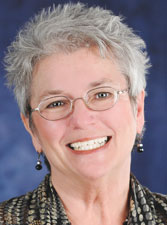 For those seniors who want to stay in their homes for as long as possible, Care Consultants for the Aging offers medically trained caregivers (CNAs & Nurses) who do a full spectrum of cares, from household tasks and companionship to hands-on assistance, as well as Hospice Support. It’s beneficial to have consistency in care and they are able to ensure this throughout the aging process. Care Consultants is able to provide as little as one hour a day to round the clock care. Often times people only need an hour to help them get ready for the day or to have someone “check” on them. They have been in business since 1991 and have served thousands of individuals and their families. Their caregivers work directly for the client and are screened, licensed, and insured, as well as having surety bonding. Families are able, welcome and encouraged to be a part of planning for cares and choosing caregivers. Robbie Nathan of Care Consultants also advises planning ahead for different outcomes, as very few people get to live their lives exactly as they had initially planned in younger years. She says, “Overall, the healthiest individuals are the ones who shared their concerns about getting older with their families, did a little research, and were secure in having a Plan ‘A’ and a Plan ‘B’. I also encourage anyone who is making these types of plans to use all available resources. One of the most utilized resources in Lincoln and Omaha is the ElderCare Resource Handbook from Care Consultants for the Aging. It covers topics on Legal & Financial, Medical Support, Home Health Support, Living Options, and a multitude of other related topics for seniors and their families. This is also available online at www.careconsultants.com or by calling any of our offices.”
For those seniors who want to stay in their homes for as long as possible, Care Consultants for the Aging offers medically trained caregivers (CNAs & Nurses) who do a full spectrum of cares, from household tasks and companionship to hands-on assistance, as well as Hospice Support. It’s beneficial to have consistency in care and they are able to ensure this throughout the aging process. Care Consultants is able to provide as little as one hour a day to round the clock care. Often times people only need an hour to help them get ready for the day or to have someone “check” on them. They have been in business since 1991 and have served thousands of individuals and their families. Their caregivers work directly for the client and are screened, licensed, and insured, as well as having surety bonding. Families are able, welcome and encouraged to be a part of planning for cares and choosing caregivers. Robbie Nathan of Care Consultants also advises planning ahead for different outcomes, as very few people get to live their lives exactly as they had initially planned in younger years. She says, “Overall, the healthiest individuals are the ones who shared their concerns about getting older with their families, did a little research, and were secure in having a Plan ‘A’ and a Plan ‘B’. I also encourage anyone who is making these types of plans to use all available resources. One of the most utilized resources in Lincoln and Omaha is the ElderCare Resource Handbook from Care Consultants for the Aging. It covers topics on Legal & Financial, Medical Support, Home Health Support, Living Options, and a multitude of other related topics for seniors and their families. This is also available online at www.careconsultants.com or by calling any of our offices.”
With the exponential growth of our aging population, the supply of doctors willing to do house calls falls short of the demand for this type of care. As the first Nurse Practitioner-owned practice in Nebraska, Health at Home Consultants seek to meet this demand by bridging the gap in care and combating the following statistics:
• 1 in 5 Medicare patients are estimated to be readmitted to the hospital within 30 days.
• Patients who live alone and have no in-home care are readmitted more than twice as often as those discharged patients who have in-home care.
• 40-50% of readmissions are linked to a lack of community services or follow-up care.
In fact, Nurse Practitioner Care Models have been shown to decrease hospitalizations by 45% and emergency room visits by 50%. Health at Home Consultants aims to assist in keeping older patients out of the hospital, which is largely the most costly and traumatic venue for healthcare. In addition to providing in-home care, they provide care to residents in Assisted, Memory and Independent Living communities when limited mobility or other issues prevent them from getting to their physician’s office. Health at Home Consultants’ Nurse Practitioners can assist with the transition from the hospital by seeing patients within three days of their hospital stay. They will work in collaboration with the patient’s physician to determine any next steps, and can help bridge the gap between the hospital stay and the follow-up clinic visit. According to Health at Home Consultants, there are many benefits of Nurse Practitioner Care in the home setting including:
• Increased accessibility/efficiency
• Cost containment
• Increased health education and counseling
• Increased quality of care
• Increased resident and family satisfaction
• Provide continuity of care through case management
• Availability to attend to minor problems
Health at Home Consultants’ Nurse Practitioners provide high quality, cost effective care and are of great service in increasing access to care for those who are at risk and need it most.
Solutions for Maintaining Good Health and Quality of Life
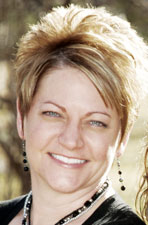 As with many other factors associated with the aging process, hearing loss is unfortunately a part of getting older for most adults. When hearing loss occurs, it is often a very subtle process. Seniors often are not aware of hearing loss until they find themselves feeling very isolated. With challenged hearing, seniors often will withdraw from social situations or will find themselves misunderstanding situations and becoming upset. The wellbeing of seniors is further reduced when they find it challenging to hear medical diagnoses and treatment plans. Therefore, hearing loss can have very significant effects on the social, physical and emotional wellbeing of seniors. Complete Hearing Solutions recommends that regardless of age, any person with hearing concerns should schedule an appointment with a board-certified audiologist. As Dr. Sandra Miller explains, “There are numerous elements that can attribute to hearing loss in addition to normal aging processes. Heredity, noise exposure and infection are among the most common.” Audiologists are educated on the medical aspects of hearing and hearing loss as well as on auditory testing and diagnosis. During the hearing consultation, the audiologist should look at all aspects of how hearing is affecting a variety of lifestyle situations. Complete Hearing Solutions has developed a staff of dedicated professionals to provide the best hearing care available. They accommodate all patients with flexible appointment scheduling, a welcoming atmosphere, and their convenient location at 1530 S. 70th street, Suite 103, which includes front door parking.
As with many other factors associated with the aging process, hearing loss is unfortunately a part of getting older for most adults. When hearing loss occurs, it is often a very subtle process. Seniors often are not aware of hearing loss until they find themselves feeling very isolated. With challenged hearing, seniors often will withdraw from social situations or will find themselves misunderstanding situations and becoming upset. The wellbeing of seniors is further reduced when they find it challenging to hear medical diagnoses and treatment plans. Therefore, hearing loss can have very significant effects on the social, physical and emotional wellbeing of seniors. Complete Hearing Solutions recommends that regardless of age, any person with hearing concerns should schedule an appointment with a board-certified audiologist. As Dr. Sandra Miller explains, “There are numerous elements that can attribute to hearing loss in addition to normal aging processes. Heredity, noise exposure and infection are among the most common.” Audiologists are educated on the medical aspects of hearing and hearing loss as well as on auditory testing and diagnosis. During the hearing consultation, the audiologist should look at all aspects of how hearing is affecting a variety of lifestyle situations. Complete Hearing Solutions has developed a staff of dedicated professionals to provide the best hearing care available. They accommodate all patients with flexible appointment scheduling, a welcoming atmosphere, and their convenient location at 1530 S. 70th street, Suite 103, which includes front door parking.
What should you think about when buying hearing aids? All things aside, your hearing aid must be a good match for your loss characteristics, your lifestyle, and should always fit comfortably when worn. Here is a list of seven factors to consider:
Loss characteristics – The nature and severity of your hearing loss will play a large role in determining which hearing aids are ultimately recommended to you. Complete Hearing Solutions can help you understand your unique loss characteristics, and explain the models that would best suit your needs.
Lifestyle – Consider your lifestyle, work environment and free-time activities. What are the things you do that are most affected by hearing loss? What are the things, if any, that you are not able to do because of hearing loss? Define your needs and set priorities. If you work outdoors or travel frequently, and are concerned about the durability of a hearing aid, be sure to review those concerns with your provider.
Technology – Sound quality is perhaps the most important consideration as it’s the reason why you are even considering purchasing a hearing aid in the first place! Digital technology is now available in every price range and allows for a wide range of flexibility.
Handling – The smallest hearing aids are the most discreet. However, if your eyesight or dexterity are factors in choosing a style of hearing aid, be certain to get a feel for what you will be working with to ensure you feel comfortable changing the batteries and inserting the aids.
Appearance – Hearing aids come in a variety of sizes, from time, completely-in-the-canal models to those that sit behind the ear. Many people are overly concerned about appearance; however, it is wise to remember that others will be far less aware of your aid than you are. In fact, your loss is MORE noticeable when you are not wearing a hearing aid.
Physical Features – Physical factors can also influence your selection of a hearing aid. The shape and size of the outer ear and ear canal can make it difficult for some people to wear particular styles. For example, if your canal is extremely narrow, in-the-canal hearing aids may not work for you. Your provider will help determine which hearing aid options are appropriate for you.
One Ear or Two? – Two ears are better than one, since binaural, or two-ear hearing, is what helps us determine where sounds are coming from and allows us to distinguish between competing sounds more easily. If you have a hearing loss in only one ear, you may be fine with one hearing aid. Age and noise-related hearing loss tends to affect both ears. If there is a loss in both ears, then you will benefit more with a binaural approach.
Funeral Arrangements
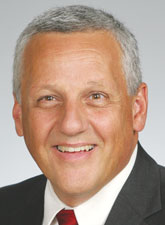 Planning is certainly a main theme to alleviate stress and ensure your happiness in the future, and Bryan Block of Butherus Maser & Love Funeral Home agrees that it should be done with family and well in advance. However, ‘well in advance’ is a tricky thing to judge as it applies to uncertain variables with our health. He says, “When people ask the benefit of making funeral arrangements ‘well ahead of time’ my first response is to ask how one knows if they are planning well ahead of time? None of us know when our last breath may come and, whether we are healthy or in poor health, our tomorrows are not guaranteed. That is why you plan ahead – because you simply don’t know how much time you have left on this earth. We all have ‘Honey-do’ lists; home repairs that need attention, work obligations and family outings to plan. Funeral planning is just another one of those things on the list and probably because of the subject matter it tends to get pushed down the list and just doesn’t take priority. The unfortunate thing is those obligations, those ‘to-do items’, just never go away. The obligation we have to take care of our personal affairs will always be sitting there nagging us to take care of it. In the grand scheme of things your funeral arrangements are not a large item – they are one of those mid-level expenses that will sit there and pester you continually until you take care of it. I frequently hear ‘I am SO glad we have that done’ from people that have completed their arrangements. This is usually followed with, ‘We’ve been meaning to do it for years and now we can check that off our list.’ Furthermore, there is a certain pride in the accomplishment of handling this obligation.” He adds, “Just as important to me is the attitude of thanks this will create in those I leave behind. I don’t wish to leave my children with a funeral bill as their last memory of me. I would much rather have them be able to spend time with family and friends reminiscing about cherished memories, and leave the service knowing that everything was paid for in advance. Whether you have experienced planning a funeral where no arrangements have been made or one where everything was taken care of, you know exactly what I’m talking about. The disappointment of having to pay an unexpected expense, or the satisfaction and pride you feel when a loved one had everything arranged for you, is exactly why everyone should pre-plan. I highly recommend putting this obligation behind you and getting on with the hobbies you enjoy, and living life in general.”
Planning is certainly a main theme to alleviate stress and ensure your happiness in the future, and Bryan Block of Butherus Maser & Love Funeral Home agrees that it should be done with family and well in advance. However, ‘well in advance’ is a tricky thing to judge as it applies to uncertain variables with our health. He says, “When people ask the benefit of making funeral arrangements ‘well ahead of time’ my first response is to ask how one knows if they are planning well ahead of time? None of us know when our last breath may come and, whether we are healthy or in poor health, our tomorrows are not guaranteed. That is why you plan ahead – because you simply don’t know how much time you have left on this earth. We all have ‘Honey-do’ lists; home repairs that need attention, work obligations and family outings to plan. Funeral planning is just another one of those things on the list and probably because of the subject matter it tends to get pushed down the list and just doesn’t take priority. The unfortunate thing is those obligations, those ‘to-do items’, just never go away. The obligation we have to take care of our personal affairs will always be sitting there nagging us to take care of it. In the grand scheme of things your funeral arrangements are not a large item – they are one of those mid-level expenses that will sit there and pester you continually until you take care of it. I frequently hear ‘I am SO glad we have that done’ from people that have completed their arrangements. This is usually followed with, ‘We’ve been meaning to do it for years and now we can check that off our list.’ Furthermore, there is a certain pride in the accomplishment of handling this obligation.” He adds, “Just as important to me is the attitude of thanks this will create in those I leave behind. I don’t wish to leave my children with a funeral bill as their last memory of me. I would much rather have them be able to spend time with family and friends reminiscing about cherished memories, and leave the service knowing that everything was paid for in advance. Whether you have experienced planning a funeral where no arrangements have been made or one where everything was taken care of, you know exactly what I’m talking about. The disappointment of having to pay an unexpected expense, or the satisfaction and pride you feel when a loved one had everything arranged for you, is exactly why everyone should pre-plan. I highly recommend putting this obligation behind you and getting on with the hobbies you enjoy, and living life in general.”
Estate Planning
Another essential aspect of planning for seniors, aside from living and funeral arrangements, is estate planning. The main options for estate planning are Trust-based plans or Will-based plans. The primary difference between the two types of planning is that the Trust-based plan will avoid probate court and the Will-based plan will end up in probate court. It is imperative to educate yourself on what type of plan works best for you, and that all of your estate plans include powers of attorney documents for medical care and financial issues. This ensures that a loved one of your choice can handle those affairs in the event that the planning individual becomes incapacitated. The whole process is exponentially more complex and difficult without the powers of attorney documents. If a husband and wife do not have powers of attorney documents naming each other as their power of attorney, when one of them becomes incapacitated the other spouse has to be appointed as a guardian and conservator for the incapacitated spouse. It can be a long, complex court process for the appointment of the guardian and conservator. In fact, it is wise to consider the several types of planning while seniors are still able to do so for themselves, including:
1. Estate planning, whether it is Will-based or Trust based, including the powers of attorney documents.
2. Funeral planning that covers all necessary details in a comprehensive manner. This includes purchase of the cemetery plots, the markers, the vault (unless they choose cremation), and the funeral services–even including the prayers, songs, ministers and family members they want involved in the services. The more they can plan the easier it is for the family members to get through the grieving process with the loss of a loved one.
3. Provide the information as to life insurance benefits, assets, and debts for the family so they know what to look for when Mom and/or Dad are gone.
4. Document all vital personal information, including usernames and passwords, for access to secured, private information on websites such as those for banking, Medicare, the IRS, and even social media sites.
5. Have a plan in place if possible for long term care. Find out where to obtain information as to assisted living, nursing home care and hospice care before something happens so there is a plan in place.
With respect to living a full and happy life all the way from beginning to end, planning for necessary aspects of life, declining health, and unfortunately but With respect to living a full and happy life all the way from beginning to end, planning for necessary aspects of life, declining health, and unfortunately but imminently, our death is crucial. This not only alleviates stress or mishaps by providing your own personal plan of action with attention to your individual needs and desires, but planning ahead also takes care of important aspects that come with aging so you can get out and make the most of daily life and your family and friends can do the same. We encourage you to get busy planning, so you can spend most of your time living!

